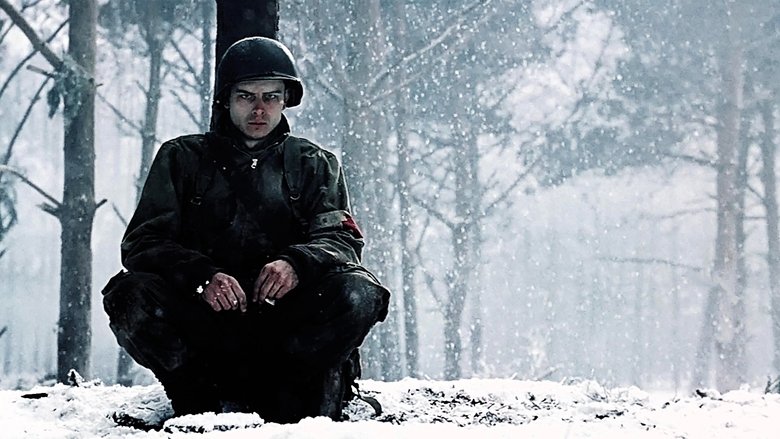Top war tv series to watch now
From the harrowing realities of combat to the complex political landscapes, these television series offer compelling perspectives on conflict and its impact.
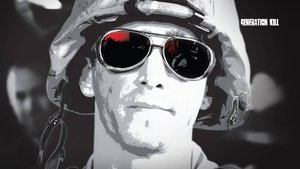


Television has long been a powerful medium for exploring the multifaceted nature of war, offering everything from gritty, boots-on-the-ground portrayals to sweeping historical documentaries and even satirical takes on the absurdities of military life.
Iconic series like Band of Brothers and The Pacific, executive produced by Steven Spielberg and Tom Hanks, set a high bar for depicting the human cost of World War II with meticulous historical detail and powerful performances. These weren't just action stories; they were deeply personal narratives about the soldiers who lived through unimaginable circumstances.
Beyond the World Wars, TV has delved into conflicts across history. Ken Burns' monumental documentary The Civil War redefined historical filmmaking with its use of archival images and narrative structure, while The Vietnam War tackled a later, equally complex period. Even fictional series like Vikings explore the brutal realities of ancient warfare and conquest.
The genre also allows for different tones, from the long-running, beloved dark comedy of MAS*H, which used humor to cope with the horrors of the Korean War, to the sharp, cynical look at modern conflict in Generation Kill. Whether exploring naval dramas like The Last Ship or geopolitical thrillers like Homeland, war on television continues to evolve, reflecting both the historical record and contemporary anxieties about conflict.
14. Blackadder (1983)
Blackadder is a classic British historical comedy series starring Rowan Atkinson as various incarnations of the scheming, cynical Edmund Blackadder, always accompanied by his dim-witted sidekick Baldrick.
While the series spans different historical periods (from the late Middle Ages to the early 20th century), the fourth and final series, Blackadder Goes Forth, is set in the trenches of World War I. This season uses the grim backdrop of the Western Front for its dark, satirical humor.
Captain Blackadder is stuck in the trenches, desperately trying to avoid being sent 'over the top' into certain death. The humor comes from his cynical attempts to escape the front, the incompetence of his superiors, the absurdity of military life, and the interactions with his eccentric fellow officers and the ever-loyal, if simple, Baldrick.
While primarily a comedy, Blackadder Goes Forth is also a sharp critique of the futility and tragic waste of life in WWI. Despite the jokes, there's an underlying sense of melancholy and impending doom that culminates in a famous, poignant final scene.
It's not a series about the experience of war in the way a drama or documentary is, but it uses a specific war setting to deliver brilliant satire and memorable characters. It's a must-watch for fans of British comedy and offers a unique, darkly humorous perspective on the First World War.
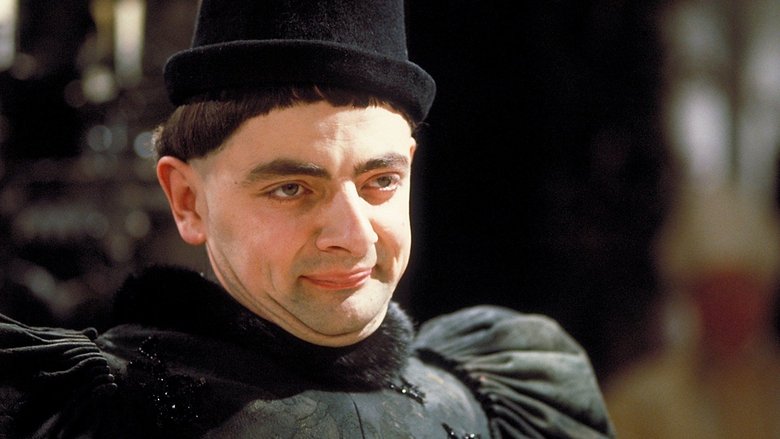
13. The Man in the High Castle (2015)
The Man in the High Castle is a science fiction series based on Philip K. Dick's novel, set in an alternate history where the Axis powers won World War II. The United States is divided into the Greater Nazi Reich in the east and the Japanese Pacific States in the west, with a neutral zone in the middle.
While the war itself is over in this timeline, the series explores the chilling consequences of that outcome and the ongoing tensions between the occupying powers. It's a story about resistance, oppression, and the search for truth, centered around mysterious films that show alternate realities where the Allies won.
The show depicts a world living under totalitarian rule, showcasing the surveillance, fear, and brutality of both the Nazi and Japanese regimes. It features elements of espionage and rebellion as characters navigate this dangerous landscape and become involved in the resistance movement.
The Man in the High Castle is less about battlefield conflict and more about the psychological and societal impact of living in a conquered world. It raises thought-provoking questions about fascism, freedom, and the nature of reality.
It's a well-produced and atmospheric series that offers a compelling, albeit disturbing, vision of what might have been. It's a war-adjacent story, exploring the aftermath and continued struggle in a world shaped by a different outcome of the conflict.
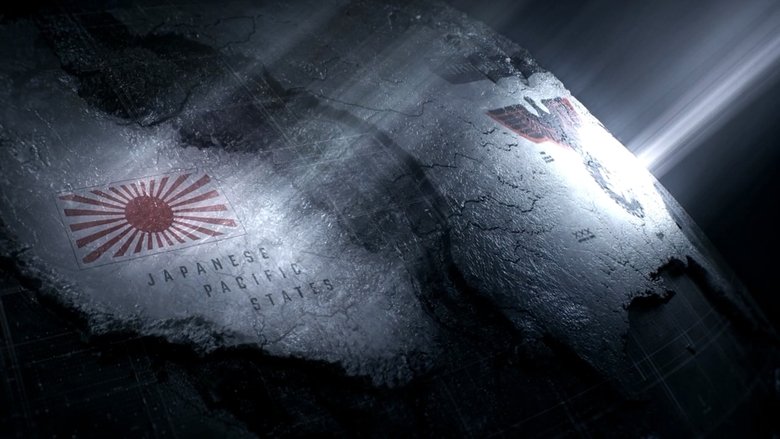
12. Homeland (2011)
Homeland is a critically acclaimed espionage thriller series that delves into the complex world of counter-terrorism and international intrigue in the post-9/11 era. While not a direct 'war' series in the traditional sense, it is deeply rooted in the themes and consequences of the War on Terror.
The show initially centers on CIA officer Carrie Mathison, a brilliant but volatile operative with bipolar disorder, who suspects that a recently rescued Marine prisoner of war, Nicholas Brody, has been turned by al-Qaeda.
Over its eight seasons, Homeland tackled various real-world geopolitical conflicts and threats, including the war in Afghanistan and Iraq, the rise of ISIS, cyber warfare, and the complexities of U.S. foreign policy. It often reflected contemporary headlines, bringing a sense of urgency and realism to its fictional narratives.
The series is known for its taut plotting, intense suspense, and compelling performances, particularly by Claire Danes as Carrie Mathison and Damian Lewis as Nicholas Brody. It explores the psychological toll of working in intelligence and the moral compromises often required.
While it shifts focus and characters over its run, Homeland consistently examines the challenges of modern warfare, the nature of extremism, and the blurry lines between good and evil in the fight against terrorism. It's a sophisticated and often thrilling look at the unseen battles fought in the shadows.
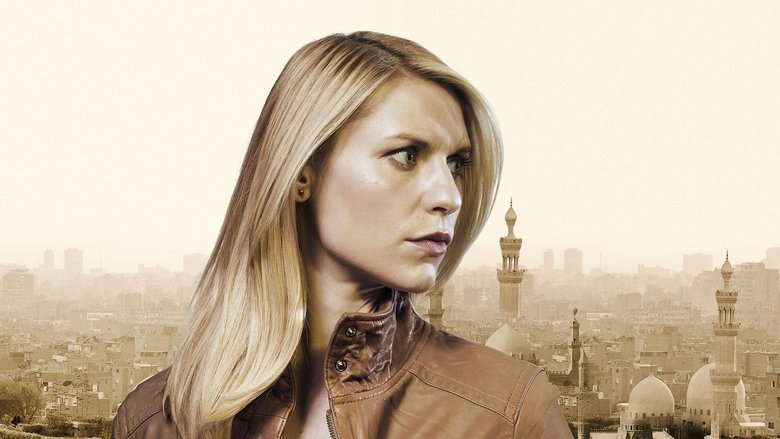
11. M*A*S*H (1972)
MAS*H is a classic television series that, despite being a groundbreaking comedy, is deeply set within the context of war – specifically, the Korean War. Following the staff of a Mobile Army Surgical Hospital, the show uses humor to cope with the grim realities of treating wounded soldiers on the front lines.
The series is famous for its sharp writing, witty dialogue, and memorable characters like Hawkeye Pierce, B.J. Hunnicutt, Hot Lips Houlihan, and Colonel Potter. While it often relied on slapstick and clever wordplay, MASH* was also known for its surprisingly poignant and dramatic moments that highlighted the emotional toll of war on the medical personnel.
Running for 11 seasons, the show evolved significantly over time, becoming more overtly political and reflective of the anti-war sentiment prevalent during its original airing (which coincided with the Vietnam War). It tackled serious themes like death, trauma, bureaucracy, and the absurdity of conflict, often using the Korean War setting as a thinly veiled allegory for contemporary events.
MASH*'s ability to balance laugh-out-loud comedy with heartfelt drama and social commentary is what made it a cultural phenomenon. Its final episode remains one of the most-watched series finales in television history.
It's a unique entry in the 'war' genre, offering a perspective not from the battlefield itself, but from the place where its devastating consequences were dealt with daily. It's a testament to the power of humor and humanity in the face of immense hardship.
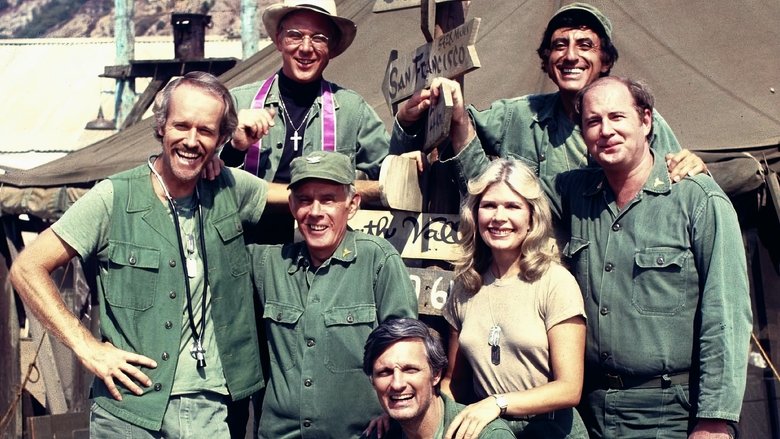
10. The Last Ship (2014)
The Last Ship is a post-apocalyptic naval drama series that begins after a global pandemic wipes out most of the world's population. The crew of a lone U.S. Navy destroyer, the USS Nathan James, finds itself among the few survivors, tasked with finding a cure and helping to rebuild civilization.
While not a traditional 'war' series in the sense of nation-state conflicts, the show features significant military action as the crew must fight off various hostile factions vying for control in the new world order, including rogue military groups, warlords, and even other governments that have survived.
The series focuses on the challenges of survival, leadership, and maintaining military discipline and ethics in a world without rules. Eric Dane stars as the ship's captain, Tom Chandler, who becomes a central figure in the fight for humanity's future.
It features naval combat sequences, ground missions, and explores the logistical and moral dilemmas faced by the crew. While the scientific aspects of the plot are often fictionalized, the show portrays the capabilities and operational challenges of a modern naval vessel.
The Last Ship is a thrilling action series that combines elements of military drama with a compelling post-apocalyptic survival narrative. It's a show about fighting for survival and the future of humanity, using a modern military setting as its backdrop.
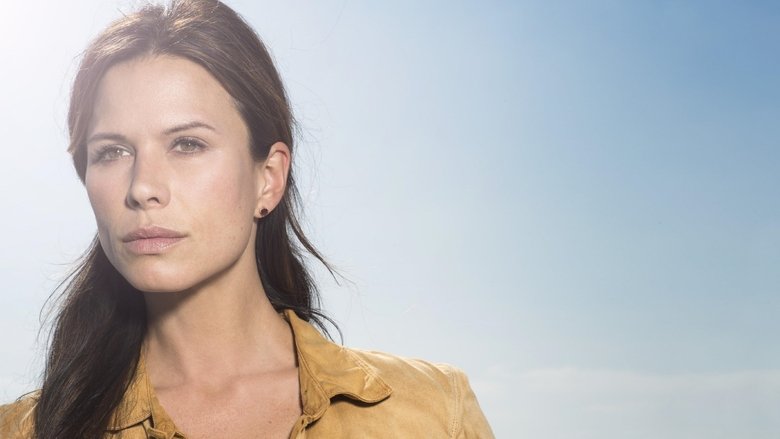
9. Vikings (2013)
Vikings is a historical drama series that loosely follows the sagas of the legendary Norse hero Ragnar Lothbrok and his sons. While not strictly a series about a specific historical war, it is steeped in the culture of warfare, exploration, and conquest that defined the Viking age.
The show depicts the brutal realities of raiding and conquest, from the initial attacks on monasteries in England to larger-scale invasions and political struggles in Scandinavia and beyond. Battles are frequent and often depicted with visceral intensity, showcasing the fighting styles and tactics of the time.
Travis Fimmel starred as Ragnar in the early seasons, portraying him as a charismatic and ambitious leader driven by curiosity about the lands across the sea. The series then shifts focus to his sons, exploring their different paths as warriors, rulers, and explorers.
Beyond the battles, Vikings delves into Norse mythology, religion, and social structures. It explores themes of faith, destiny, ambition, and the clash of cultures between the pagan Norse and the Christian kingdoms they encounter.
While it takes creative liberties with historical accuracy for dramatic purposes, Vikings offers an engaging and often brutal portrayal of a warrior society and the conflicts that shaped its history. It's a compelling watch for those interested in Norse history and historical action dramas.
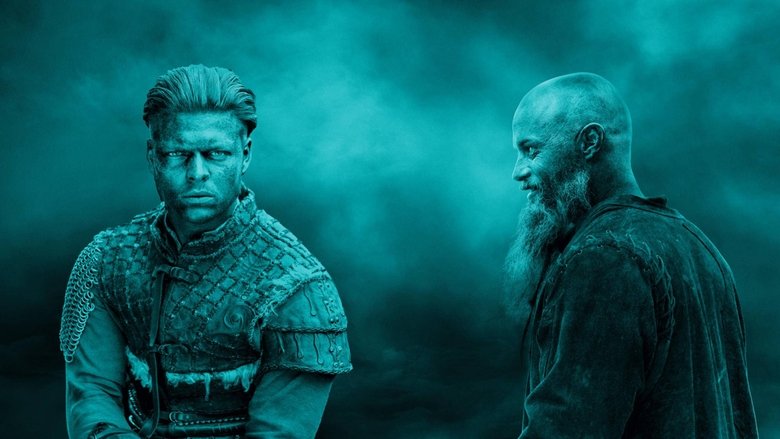
8. Sharpe (1993)
Sharpe is a British historical drama series based on the novels by Bernard Cornwell, following the adventures of Richard Sharpe, a British soldier during the Napoleonic Wars. Starring Sean Bean in the titular role, the series blends military action, historical events, and personal drama.
Set primarily during the Peninsular War in Spain and Portugal, the series depicts Sharpe's rise through the ranks from a common soldier to an officer through acts of bravery and leadership. Each episode typically centers around a specific mission or battle, often involving espionage, skirmishes, and encounters with historical figures.
Sean Bean is perfectly cast as the rugged, resourceful, and often rebellious Sharpe. He's a man from humble beginnings who doesn't fit neatly into the aristocratic world of the British officer corps, leading to frequent clashes with his superiors.
The series offers a look at the realities of campaigning in the early 19th century, depicting battlefield tactics, the harsh conditions faced by soldiers, and the political maneuvering behind the lines. While it takes some creative liberties with historical accuracy for dramatic effect, it provides an entertaining glimpse into this period of warfare.
With its mix of thrilling action, engaging characters, and historical backdrop, Sharpe is a fun and adventurous watch for fans of military historical fiction. It's a classic piece of British television that solidified Sean Bean's status as a leading man.

7. The War (2008)
Another powerful documentary series from Ken Burns, The War focuses specifically on the American experience of World War II, told through the eyes of citizens from four geographically distributed American towns: Waterbury, Connecticut; Mobile, Alabama; Sacramento, California; and Luverne, Minnesota. This localized approach provides a unique and deeply personal perspective on a global conflict.
Rather than offering a broad strategic overview, the series delves into the lives of individuals in these towns – the soldiers who fought, the families who waited at home, the factory workers, and the community leaders. It explores how the war impacted daily life, reshaped communities, and fundamentally changed the nation.
Like other Burns documentaries, it masterfully employs archival footage, photographs, and compelling interviews with veterans and civilians who lived through the era. The focus on just four towns allows for a more intimate and detailed exploration of the diverse experiences of Americans during the war.
The series covers the major events of the war, but always grounds them in the human stories from these specific places. It highlights the sacrifices made both on the battlefield and the home front, the challenges faced by minority groups, and the collective effort required to win the war.
The War is a moving and insightful look at how a nation mobilized and endured a world-altering conflict, told through the lens of the people who lived it. It's a testament to the resilience and spirit of the American people during a time of unprecedented challenge.

6. The Civil War (1990)
Ken Burns' groundbreaking documentary series, The Civil War, is a landmark achievement in historical filmmaking and a crucial resource for understanding the conflict that fundamentally reshaped the United States. Utilizing his signature style of slow pans and zooms over still photographs (the 'Ken Burns effect'), alongside archival materials, expert commentary, and powerful narration by David McCullough, the series brings this pivotal era to life.
Covering the causes of the war, the major battles, the lives of soldiers and civilians, and the long road to emancipation and reconstruction, the series provides a comprehensive overview. What makes The Civil War so compelling is its focus on personal accounts – drawing from diaries, letters, and memoirs of those who experienced the conflict firsthand. These voices, read by a distinguished cast of actors, add an intimate and deeply human dimension to the grand historical narrative.
The use of period music, particularly the haunting melodies played on a fiddle by Jay Ungar, contributes significantly to the emotional resonance of the series. It captures the tragedy, heroism, and complexity of a nation tearing itself apart.
While the series was produced in 1990, its depth of research, emotional impact, and narrative clarity ensure its enduring power. The Civil War is not just a history lesson; it's a profound meditation on the nature of war, freedom, and the identity of America. It's essential viewing for anyone seeking to understand the defining event of the 19th century in the U.S.

5. The Vietnam War (2017)
From acclaimed filmmakers Ken Burns and Lynn Novick, The Vietnam War is a monumental, ten-part documentary series that offers a deeply complex and multifaceted examination of one of the most divisive conflicts in American history. Like other Burns productions, it masterfully weaves together archival footage, photographs, contemporary news reports, and oral histories.
What sets this series apart is its commitment to presenting a wide range of perspectives, including those of American soldiers and anti-war protestors, as well as Vietnamese soldiers and civilians from both the North and the South. This approach provides a more complete and nuanced understanding of the war's origins, progression, and aftermath.
The narrative is structured chronologically, detailing the increasing American involvement, the major battles, the political turmoil at home, and the eventual withdrawal. However, it's the personal stories that truly resonate – the accounts of soldiers experiencing combat, the trauma of those who returned home, and the enduring impact on the Vietnamese people.
The soundtrack, featuring iconic music from the era, adds another powerful layer to the storytelling. The Vietnam War is not just a historical account; it's an emotional journey that forces viewers to confront the difficult truths of the conflict, its human cost, and its lasting legacy on all involved nations. It's a challenging but essential watch for understanding this pivotal period.

4. The World at War (1973)
A landmark documentary series, The World at War remains one of the most comprehensive and authoritative accounts of World War II ever produced for television. Narrated by the legendary Laurence Olivier, the 26-episode series utilizes a vast archive of film footage, photographs, and, crucially, interviews with key figures and ordinary people who lived through the conflict.
Produced by Thames Television, it covers the war from its origins in the interwar period through its devastating conclusion. What makes The World at War so powerful is its global scope and its inclusion of perspectives from all sides of the conflict – soldiers, civilians, politicians, and resistance fighters. It goes beyond the battles to explore the political machinations, the home fronts, the Holocaust, and the long-lasting consequences of the war.
The interviews are particularly impactful, featuring testimonies from figures like Albert Speer, Karl Dönitz, and numerous Allied commanders, alongside the poignant recollections of everyday individuals who endured bombing raids, occupation, and immense loss. These personal accounts bring a deeply human dimension to the grand historical narrative.
While the production values reflect its 1970s origin, the sheer depth of research and the breadth of material presented ensure its continued relevance. It's an invaluable historical resource and a compelling, often moving, viewing experience that provides a panoramic view of the 20th century's most devastating conflict.

3. Generation Kill (2008)
Generation Kill, based on the book by Evan Wright, offers a gritty and unflinching look at the early days of the 2003 invasion of Iraq through the eyes of a U.S. Marine Corps Force Reconnaissance battalion. Created by David Simon and Ed Burns (creators of The Wire), the series is renowned for its sharp dialogue, dark humor, and realistic portrayal of modern warfare.
The miniseries follows the First Reconnaissance Battalion as they push north towards Baghdad. It captures the chaos, confusion, and often absurd realities faced by soldiers on the ground, from incompetent leadership and bureaucratic hurdles to the moral ambiguities of fighting an unconventional enemy.
What makes Generation Kill stand out is its dedication to authenticity. Wright, an embedded reporter, based the book on his own experiences, and the series captures the authentic language and experiences of the Marines. The cast, including Alexander Skarsgård, James Ransone, and Lee Tergesen, deliver raw and believable performances that feel less like acting and more like witnessing real interactions.
The series doesn't rely on big, dramatic battles; instead, it focuses on the day-to-day grind, the long convoys, the tense standoffs, and the psychological toll of being constantly on edge. It's a critical look at the complexities of the Iraq War, raising questions about strategy, rules of engagement, and the human cost of conflict.
For anyone seeking a realistic and thought-provoking depiction of contemporary military life and the realities of modern warfare, Generation Kill is an essential and compelling watch. It's intelligent, darkly funny, and brutally honest.

2. The Pacific (2010)
Picking up the mantle from Band of Brothers, The Pacific shifts the focus to the brutal and unforgiving theater of war in the Pacific during World War II. Also executive produced by Spielberg and Hanks, this miniseries offers a stark contrast to the European front, showcasing the unique challenges faced by U.S. Marines fighting against the Japanese.
The series primarily follows the intertwined journeys of three real-life Marines: Robert Leckie, Eugene Sledge, and John Basilone. From the initial landings on Guadalcanal to the horrific battles of Peleliu and Okinawa, The Pacific doesn't shy away from depicting the sheer savagery and psychological toll of island hopping campaigns.
Where Band of Brothers emphasized camaraderie among a single company, The Pacific often highlights the isolation and individual trauma experienced by soldiers in this different environment. The enemy is depicted as relentless and the conditions are depicted as utterly punishing – jungle heat, disease, and the constant threat of ambush.
The performances by James Badge Dale, Joe Mazzello, and Jon Seda are compelling, bringing to life the struggles and sacrifices of these real men. The production design and cinematography are breathtaking, capturing both the lush, dangerous landscapes and the claustrophobic horror of the battlefield.
The Pacific is a difficult watch at times, but it is an incredibly important one. It provides a vital perspective on a less frequently depicted aspect of WWII and serves as a powerful tribute to the endurance and sacrifice of the Marines who fought there. It's a fitting, albeit darker, companion piece to its acclaimed predecessor.

1. Band of Brothers (2001)
Widely regarded as one of the greatest television series ever made, Band of Brothers plunges you headfirst into the harrowing yet deeply human story of Easy Company, 2nd Battalion, 506th Parachute Infantry Regiment of the 101st Airborne Division during World War II.
Executive produced by Steven Spielberg and Tom Hanks, fresh off the success of Saving Private Ryan, this miniseries is a monumental achievement in historical drama. It follows the soldiers from their rigorous training at Camp Toccoa, Georgia, through their parachute jump into Normandy on D-Day, the brutal fighting in the hedgerows, the siege of Bastogne during the Battle of the Bulge, and ultimately, to the capture of Hitler's Eagle's Nest.
What sets Band of Brothers apart is its unwavering commitment to authenticity and its focus on the individual soldiers. Based on Stephen Ambrose's non-fiction book, the series incorporates interviews with the actual veterans, lending an incredible layer of realism and emotional weight to the narrative. The cast, featuring many actors who would later become stars (like Damian Lewis and Donnie Wahlberg), delivers powerful, nuanced performances that capture the camaraderie, fear, and resilience of men in combat.
The production values are absolutely stunning, from the meticulously recreated battlefields to the period-accurate uniforms and equipment. The action sequences are intense and unflinching, depicting the brutal reality of war without glorifying it. But it's the quiet moments, the interactions between the soldiers, the shared experiences of hardship and loss, that truly resonate.
Band of Brothers is more than just a war story; it's a profound exploration of brotherhood, sacrifice, and the enduring spirit of those who fought in the Second World War. It's essential viewing for anyone interested in history or simply powerful storytelling.
